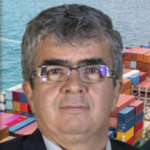
Brazil is currently suffering the consequences of a misguided choice dating back to the time of President Juscelino Kubitschek (1956-1961) when the government, pressured by American interests and the automakers establishing themselves in the country, decided to invest solely in the construction of highways. Of course, the country needed highways, and even today, there is a shortage of well-paved and duplicated roads, especially in the North and Northeast regions. However, public administrators should not have been so neglectful in allowing the neglect of railways, ports, airports, and even the road transportation system itself.
In fact, the road transportation system deteriorated to such an extent that it had to be privatized, resulting in toll collection, which burdens society because tax collection was not reduced. In other words, what is collected as Vehicle Property Tax (IPVA) should have been sufficient for road maintenance, expansion, and construction. This is the case, for example, in Switzerland, a country where there are no tolls on its modern highways.
Today, trucks, when they manage to cover the distances and pass through numerous toll booths, encounter congested and poorly maintained port access points. All of this translates to higher logistics costs. Moreover, since 2000, the number of containers handled in Brazil has tripled, but the road and port infrastructure remains largely the same as it was built three generations ago. What can be done? It seems unquestionable that the solution lies in increasing competitiveness in port and terminal concessions and in the railway system, which currently offers poor services because it is practically managed as a monopoly.
For now, the road network still provides accessibility to production sites, ports, and airports, albeit with immense fragility, as a highway accident can often cause disruptions within a 100-kilometer radius. In this regard, one must consider the costs of medical expenses or even deaths caused by road accidents. Furthermore, highway security is weak, and the rate of cargo theft is on the rise. Each occurrence increases insurance costs, which reflects in the product’s loss of competitiveness. To combat cargo theft, the government is now considering mandatory installation of tracking chips in the Brazilian truck fleet.
It’s also worth mentioning that the excessive number of trucks on the roads has led to congestion, even though mandatory scheduling for port unloading has mitigated its effects. Additionally, the damage caused by overloaded trucks, which reduces the lifespan of roads, should not be forgotten.
Therefore, the solution lies in adopting measures that encourage the use of railways, waterways, and coastal shipping, taking some of the load off the highways. In other words, the solution involves integrating modes of transportation, as seen in Europe and the United States.
Mauro Lourenço Dias, an electronic engineer, is the president of the Fiorde Group, composed of the companies Fiorde Logística Internacional, FTA Transportes e Armazéns Gerais, and Barter Comércio Internacional. Email: fiorde@fiorde.com.br Website: www.fiorde.com.br.
Return to Blog